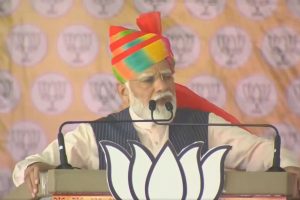The breakdown of dialogue and increasing tensions with the Taliban do not augur well for the security of Pakistan. The country was responsible for the success of the Taliban in the capture of Afghanistan twice, in 1996 and 2021. When the Haqqani warriors practically walked into the city after President Ashraf Ghani had fled Kabul, world leaders and their foreign and defence ministers made a beeline to Islamabad realising that Pakistan had positioned itself on the world stage as a country to be reckoned with. Pakistan appeared to be calling the shots. India could only sit back and watch the outcome with dismay having solidly backed the fallen regime for years on end. To understand how Pakistan has lost its commanding position in such a short period of time requires going back to the initial takeover of Afghanistan. Even before the Russian invasion of Afghanistan, Zbignew Brezinski, President Jimmy Carter’s National Security Adviser, had proposed training selected people from Muslim countries to fight the ungodly Russian communist regime. Consequent to the Russian invasion of Afghanistan, the Americans made Pakistan the base for Mujahideen operations angainst the occupiers.
The Pakistan ISI brought the different Mujahideen groups under their wing. They organised, equipped, trained and funded them with US monies flowing into Pakistan. Their favourite Mujahedeen leader at the time was Gulbudin Hekmatyar of the Hizb-Islami. (The Pakistan embassy as well as his headquarter was attacked recently in Kabul). It was said that William Casey spent more time in Peshawar than at the CIA headquarters at Langley. He went on to allow unhindered access to ISI operatives to Langley. It was to cost the US dear in later years. What needs to be emphasised here is that General Zia ensured that Pakistan’s hold over the Quetta Shura that had taken control of Afghanistan was never relaxed. In passing mention must also be made of General Najibulla’s generalship in holding out for so long against the combined might of Pakistan, the US and Mujahedeen beseiging Kabul. He finally surrendered only when the fighters of Dostum and Ahmed Shah Masoud who were defending Kabul as well decided one fine day to pull out suddenly. With his flanks wide open Najibullah was left with no choice but to capitulate). The narration of the first Taliban dispensation in Afghanistan and their subsequent defeat by the Northern Alliance with massive US support has lessons for Pakistan consequent to the capture of Kabul in 2021. The speedy capture the second time round was made possible by the meticulous planning and coordination in Pakistan and its unstinting military support. The spearhead of the unopposed entry into Kabul were the Haqqanis linked solidly to their mentors – the Pakistan ISI. They rapidly took full control over the city to the exclusion of the other Taliban factions and went about eliminating suspected opponents and pro-India supporters. Sirajjudin Haqqani’s exclusive control over Afghanistan’s capital did not sit well with the others. It was the reason that ministerial portfolios were not agreed upon till the ISI chief visited Kabul and hammered out an agreement ensuring in the process that the Haqqanis got control of the vital Interior Ministry. Being early days after capture, the larger Taliban groupings felt obliged to go along.
After briefly going over the capture of Afghanistan in 1993 and 2021 on both occasions made possible by support from Pakistan, the question arises as to how is it that the prime backer is feeling insecure after being in the driver’s seat. The comparison with Hamid Gul’s influence on the Taliban throughout till the latter’s overthrow at the end of 2001 and the present time becomes inescapable. Was it the turmoil in Pakistan after the removal of Imran Khan through a parliamentary ballot and the divisions within the Army that led to Pakistan ISI taking its eye off the ball? These questions remain unanswered.
Meanwhile ordinary Pakistanis and watchers of the situation in and around the region keep wondering what Pakistan’s response – whenever it gets its act together – will be to the Tehrik-e-Taliban e Pakistan ( TTP) attacks into Pakistan. That the Taliban, even the Haqqanis, seem reluctant to hold TTP back could become an existential worry for Islamabad because in the process the people in the tribal belt and Khyber Pakhtunkhwa are becoming increasingly restless. They are providing support to the TTP. Opening up to India adds to Pakistan’s future options. Slowly but surely Pakistan’s strategic depth in Afghanistan is melting away.











